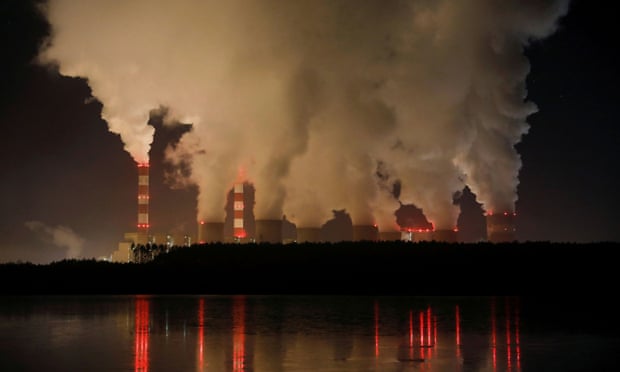I’m a climate scientist. Don’t Look Up captures the madness I see every day
Peter Kalmus (The Guardian)
A film about a comet hurtling towards Earth and no one is doing anything about it? Sounds exactly like the climate crisis.
The movie Don’t Look Up is satire. But speaking as a climate scientist doing everything I can to wake people up and avoid planetary destruction, it’s also the most accurate film about society’s terrifying non-response to climate breakdown I’ve seen. (...)
The scientists are essentially alone with this knowledge, ignored and gaslighted by society. The panic and desperation they feel mirror the panic and desperation that many climate scientists feel. (...)
But this isn’t a film about how humanity would respond to a planet-killing comet; it’s a film about how humanity is responding to planet-killing climate breakdown. We live in a society in which, despite extraordinarily clear, present, and worsening climate danger, more than half of Republican members of Congress still say climate change is a hoax and many more wish to block action, and in which the official Democratic party platform still enshrines massive subsidies to the fossil fuel industry; in which the current president ran on a promise that “nothing will fundamentally change”, and the speaker of the House dismissed even a modest climate plan as “the green dream or whatever”; in which the largest delegation to Cop26 was the fossil fuel industry, and the White House sold drilling rights to a huge tract of the Gulf of Mexico after the summit; in which world leaders say that climate is an “existential threat to humanity” while simultaneously expanding fossil fuel production; in which major newspapers still run fossil fuel ads, and climate news is routinely overshadowed by sports; in which entrepreneurs push incredibly risky tech solutions and billionaires sell the absurdist fantasy that humanity can just move to Mars. (...)
There may only be five years left before humanity expends the remaining “carbon budget” to stay under 1.5C of global heating at today’s emissions rates – a level of heating I am not confident will be compatible with civilization as we know it. And there may only be five years before the Amazon rainforest and a large Antarctic ice sheet pass irreversible tipping points.
The Earth system is breaking down now with breathtaking speed. (...)
A lack of technology isn’t what’s blocking action. Instead, humanity needs to confront the fossil fuel industry head on, accept that we need to consume less energy, and switch into full-on emergency mode. (...)

The Earth system is breaking down now with breathtaking speed.’ Photograph: Niko Tavernise/Netflix/PA.
Tags: #movies #climate #climate_change #climate_crisis #global_warming #climate_science #amazon_rainforest #deforestation #savannah #antarctic_ice_sheet #tipping_points #fossil_fuel #fossil_fuel_industry #fossil_fuel_ads #cop26 #oil_companies #klimaat #klimaatverandering #klimaatcrisis #film #ocean_level
Today the world's biggest carbon capture facility turned on. If it works, in one year it will capture three seconds worth of humanity's CO2 emissions... at incredible expense. I'm rooting for it, but only a fool would bet the planet on it. #EndFossilFuel pic.twitter.com/5ROJr4tPC9
— Peter Kalmus (@ClimateHuman) September 9, 2021
